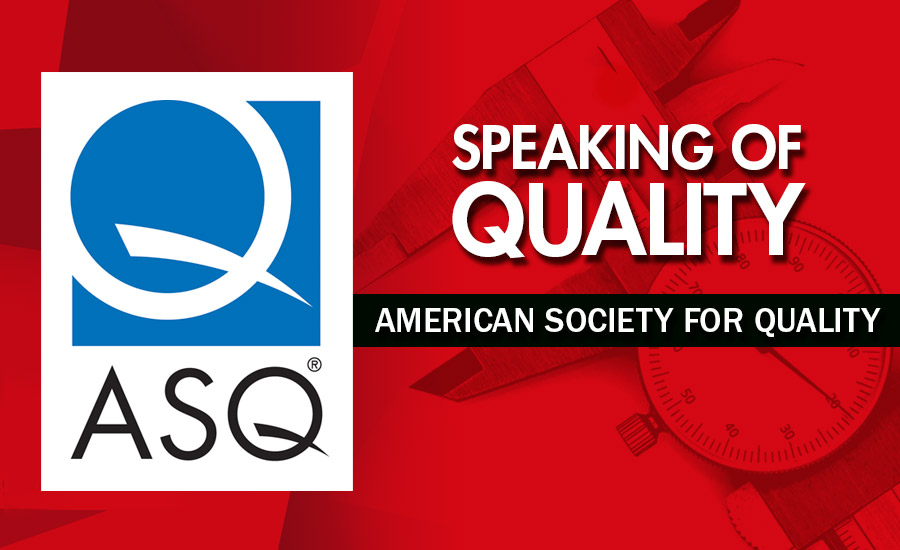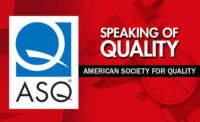My youngest child graduated college last May and just transitioned into his very own apartment. As I helped him move I reflected on when I first ventured out on my own many years ago. Due to rent, a student loan, and a car loan I had limited funds; I also had little experience preparing my own meals so there were limited menu options. At the time frozen microwave dinners were in their infancy and TV dinners were not filling enough for a young man in his early twenties so I found myself gravitating towards Hamburger Helper and similar easy-to-prepare meals.
After several years of employment, I wanted to challenge myself so I registered to take the ASQ Certified Quality Engineer (CQE) exam. Adding the CQE certification to my credentials was the catalyst for my promotion from quality engineer to senior quality engineer. I quickly made the correlation between obtaining certifications and eating better. My hunger for better quality meat led me to ASQ’s Certified Quality Auditor exam, which then resulted in me finding a quality manager position! The trend was obvious: ASQ certifications directly correlate to opportunity, promotions, and better eating. No more Hamburger Helper!
An ASQ certification is a formal recognition that an individual has demonstrated a proficiency within, and comprehension of, a specified body of knowledge. It provides both individuals and employers with a competitive edge, because it validates that the workforce is proficient in the principles and practices of quality and has the skills and knowledge to better ensure the quality of products and services.
Individuals with an ASQ certification have a leg up on noncertified peers who have comparable education, experience, and skills because the certification validates proficiency to a defined body of knowledge. This differentiation makes an individual more marketable in the workplace, thus opening career paths both internal and external. Individuals earning a certification can expect to be rewarded; rewards can be in the form of compensation, advancement, and opportunity. Per Quality Progress’s annual salary survey, certified professionals, on average, earn higher salaries than their non-certified peers.
ASQ certifications are internationally recognized credentials; international recognition from a third party adds further value and promotes self-confidence and professional pride. Many ASQ certifications are transferable across industries since they are independent of a specific industry; for example, an ASQ Quality Inspector certification provides credence to a person’s knowledge and skills regardless of whether they work in the automotive, aerospace, defense, or another industry.
The value of an ASQ certification goes far beyond an individual achievement, for it also provides significant benefits to employers. When hiring, ASQ certifications lessen the unknown qualities of candidates because certifications provide quantifiable evidence to a specified body of knowledge. A highly qualified staff helps organizations more easily achieve business objectives. Ultimately, third party validation of employee skills and knowledge provides organizations with a competitive edge.
Organizations that value professional certifications have greater employee loyalty because support of certifications increases morale. Many ASQ certifications require recertification through continual learning; doing so ensures that a workforce is constantly honing their skills and furthering their knowledge. Per Max Christian Hansen’s research published in the December 2015 issue of Quality Progress, when an ASQ certification has been added as a new requirement to a respondent’s job, 80-85% of survey respondents indicated that they would likely be satisfied in that job. Because of their advanced skills and low turnover, certified employees provide organizations with a market differentiator.
In some instances, having a certified staff may fulfill contract requirements, so certification may be an entry requirement for employment. Certified professionals elevate a company’s image, thus allowing it to be viewed in a more positive light. Lastly, organizations with a certified staff will achieve more “bang for their buck.” The end result is that professional certifications add to an organization’s bottom line.
ASQ is the only organization that administers certifications encompassing the entire quality profession. They currently offer 18 professional certifications, ranging from inspector to Master Black Belt. ASQ’s certification exams are globally recognized and endorsed by more than 125 international organizations. In addition to English, some ASQ certification exams are offered in Spanish, Portuguese, Mandarin Chinese, and Korean.




